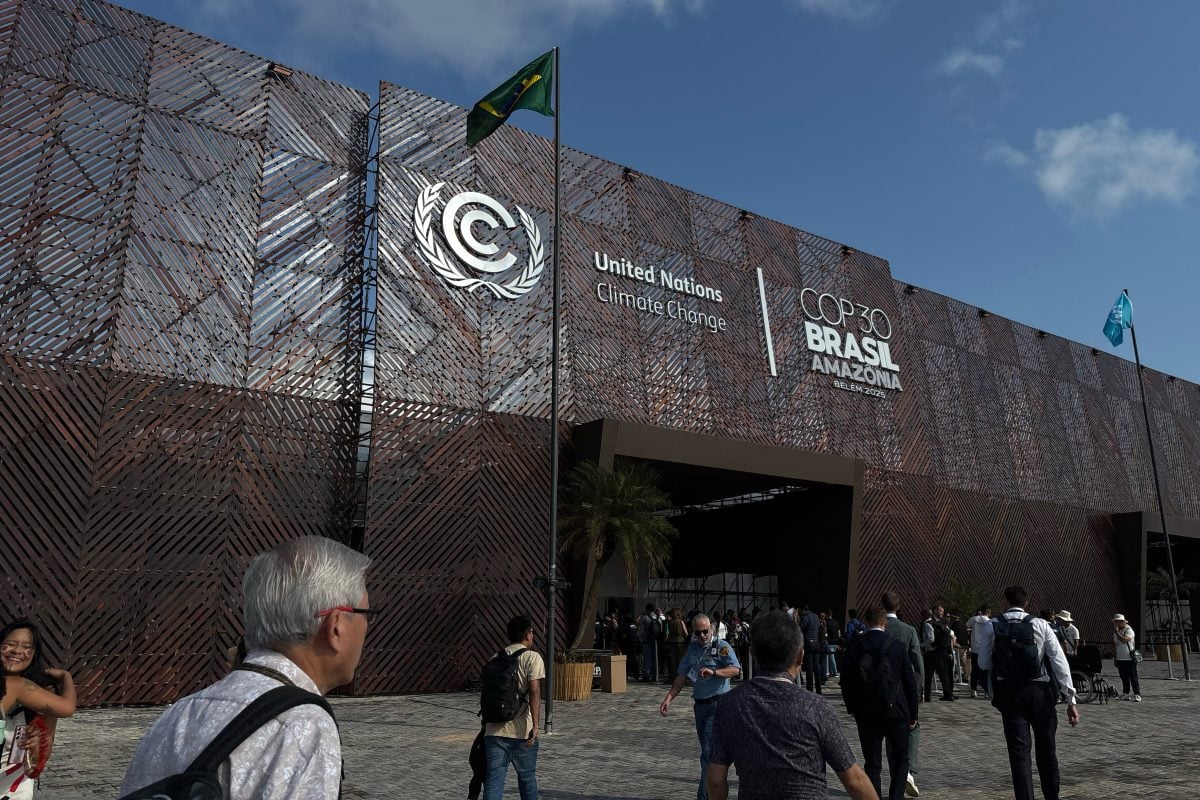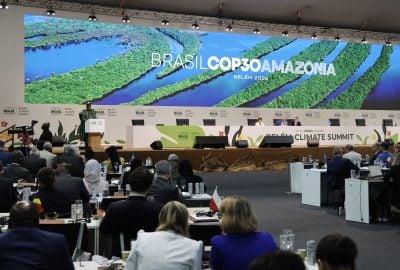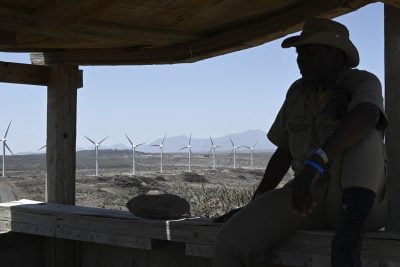This year’s world climate change meeting in Belem, Brazil (COP30) will be held under the cloud of broken promises. Fifteen years ago in Copenhagen (COP15), high-income countries promised at least $100bn in climate funds for developing countries in addition to existing aid allocations. Instead, so far part of climate funding has come from foreign aid budgets or in the form of loans. This has had a double negative effect in developing countries. First, the diversion of funds from development projects to climate mitigation strategies has not been ideal. Second, availing climate finance in the form of loans has contributed to the worsening fiscal position of already debt-burdened developing countries.
Even more worrying than the broken promises by high-income countries is the declining urgency about reducing greenhouse emissions. This is for two reasons. First, more pressing matters increasingly hog attention. Much of the world is currently gripped with economic uncertainty due to trade wars, slow growth, populist politics, and a generalised decline of multilateralism. These developments have been exacerbated by political paralysis in leading Western countries that for decades have dominated the global multilateral system. Second, the rise of China as a leader in green technologies has altered the geopolitics of global climate change policy coordination. In response, Western policymakers have developed cold feet when it comes to championing policy agendas that reinforce Chinese runaway manufacturing dominance in product categories such as electric vehicles, wind turbines, solar panels, and other green technologies.
The declining urgency regarding climate change means that global compacts are likely to face severe strains. The existing United Nations framework is predicated on the idea that countries will, in good faith, honour their commitments to reduce emissions or contribute funds towards climate initiatives. The current state of affairs significantly weakens the principle of common but differentiated responsibilities, which ensures fairness and justice in global climate policies.
Lessons from China
Where does this leave the global climate agenda? In contrast to Western countries’ political paralysis and lack of policy imagination, China offers potential lessons for the way forward. Setting aside the geopolitics of energy supply chains, the important lesson from China is that climate policies can be developmentalist. This is in contrast with much of the West where climate has been framed, and therefore largely understood, as anti-developmentalist. The perception of Western climate policies is a function of how climate activism evolved and high-profile policy mistakes (a glaring example being Germany’s decision to retire its nuclear reactors). And since Western governments and organisations tend to dominate global climate advocacy, some of these pathologies have been externalised to low-income countries.
However, this need not be the case. Developing countries should take the initiative and lead the global climate agenda in the developmentalist direction of energy abundance and job creation. They must collectively insist that poverty is not a viable climate strategy. That transition policies must be focused on the urgent need to end energy poverty and spur rapid economic growth. And that integration into emerging green energy supply chains must be done in a way that creates jobs in developing countries. They cannot simply accept to be exporters of unprocessed “green” minerals and importers of electric vehicles, solar panels, batteries, and wind turbines.
In doing so, developing countries will shift the global discourse on climate policy coordination away from the disempowering framing of reparative justice at the mercy of high-income countries, and towards proactive developmentalist climate politics.
This shift is important. For a long time, climate policies in developing countries have largely reflected the priorities of high-income countries. Consequently, mitigation has been emphasised at the expense of adaptation. Consequently, the negative economic consequences of energy poverty have been ignored. In the same vein, fights over the flow of fungible funds have overshadowed the substantive effects of climate finance. And perhaps most importantly, precious little has been done to cultivate domestic political constituencies that can anchor climate policies into the future. Instead, climate policy discourse remains the preserve of elites in high offices and at global conferences.
Shift focus to developing countries
It is hard to overstate the importance of anchoring climate policies in the politics of developing countries. It is the best way to ensure that climate policies reflect objective economic realities on the ground – especially the need to balance climate mitigation against the urgent need to end energy poverty. This development would have the added benefit of rebranding global climate policymaking as inherently developmentalist. Instead of energy-rich high-income countries preaching climate emission reductions, there would be a global drive to increase investments in green energy abundance, green growth, and green job creation at scale. This is precisely the developmentalist makeover that global climate policies need.
This is the message that should be top of mind for negotiators and other participants at COP30. Despite the emerging subdued attention to climate change by rich countries, COP30 has a real opportunity to reframe the global climate agenda. Instead of sticking to the script written largely by rich countries, developing countries should embrace a proactive developmentalist climate agenda. The idea should be to champion a common sense commitment to make climate policies workable from the perspective of everyday people trying to make a living and who hope for a better material future for themselves and future generations.
Want to continue reading? Subscribe today.
You've read all your free articles for this month! Subscribe now to enjoy full access to our content.
Digital Monthly
£8.00 / month
Receive full unlimited access to our articles, opinions, podcasts and more.
Digital Yearly
£70.00 / year
Our best value offer - save £26 and gain access to all of our digital content for an entire year!

 Sign in with Google
Sign in with Google 



